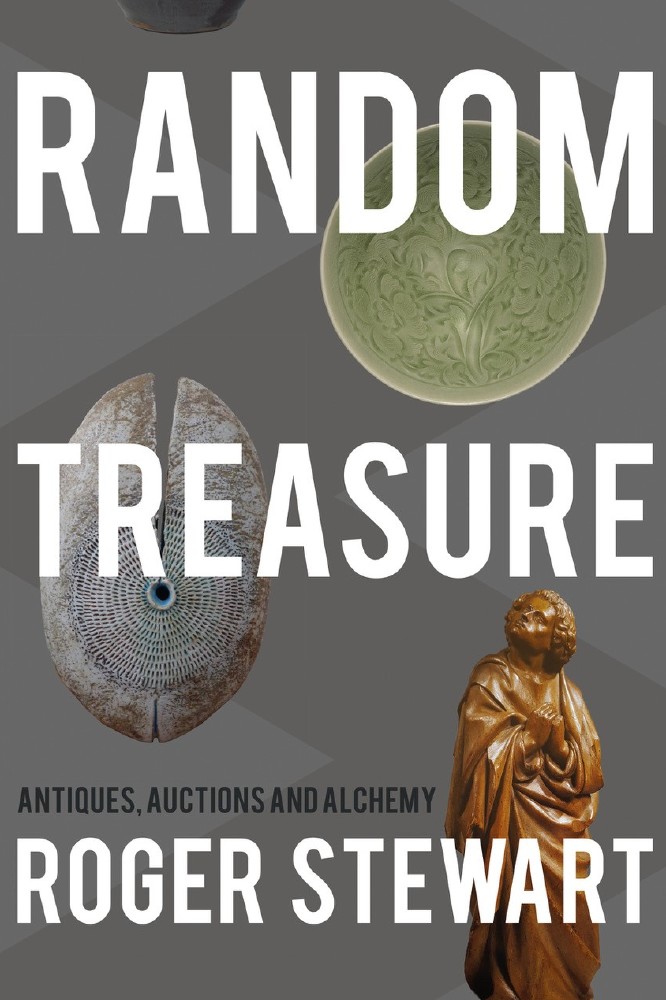I’ve been an antique collector and occasional dealer for around sixty years, and my new book Random Treasure: Antiques, Auctions and Alchemy is full of stories about great finds made in second-hand shops and local auctions – plus a few disasters too.

Roger Stewart
My biggest success was a 15th century wooden statue bought in Edinburgh for just £400, and re-sold in Paris for over £200,000. You might think that there’s some kind of trick or special skill involved in making a find like that – but there isn’t. Anyone can do it if you’re ready to put in the work, use your eyes, keep learning, and take an occasional risk.
Here are my top ten tips to help beginners to find Random Treasure among the dross:
- Be thorough – when you’re in a street with several second-hand shops or charity shops, look in them all. If you’re going to find random treasure it will always be in the last shop you visit.
- Be open-minded – any object might turn out to be treasure, whether you know something about it or not.
- Be open-eyed – train your eye to spot quality, age or uniqueness in every class of object that you might encounter.
- Back your hunches – a few successes will more than compensate for a lot of failures, whether in terms of profit or any other measure of satisfaction.
- Build up your knowledge – try to know just a little more about the stuff you’re looking at than other people looking at it, especially the person who’s wanting to sell it to you.
- Choose your specialist subject and learn about it – whether it’s Star Wars figures or Chinese porcelain, retro furniture or Roman antiquities. But the more obscure your area of expertise, the better you’ll succeed when the seller thinks it’s junk but you know it’s treasure.
- Do your research – once you’ve bought a piece, find out about it. The internet is a wonderful resource for images to compare and experts to question, and you can often get a long way towards identification and authentication without getting up from your computer.
- Treat failure as success – if after all you find that it’s trash and not treasure, you’ve learned something valuable for next time.
- Take care with how you sell – if you want to turn your finds into cash, find the best outlet for the sale of every object, whether it’s a top auction house, a specialist dealer or an online auction.
- Don’t let your hobby take over your life – antique hunting can easily get you hooked. To find out if you’re in danger of getting obsessed, get a copy of Random Treasure and read Chapter 10 without delay!

Random Treasure by Roger Stewart is published by The Book Guild Ltd and is available from online booksellers. For more information, visit www.random-treasure.com, where you’ll also find the author’s blog featuring stories about all kinds of intriguing antiques.

